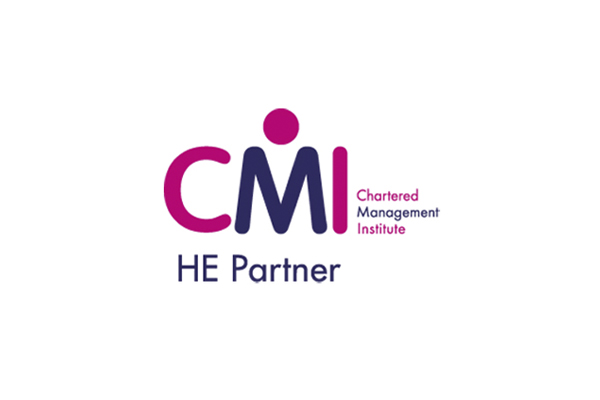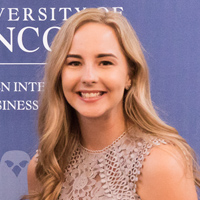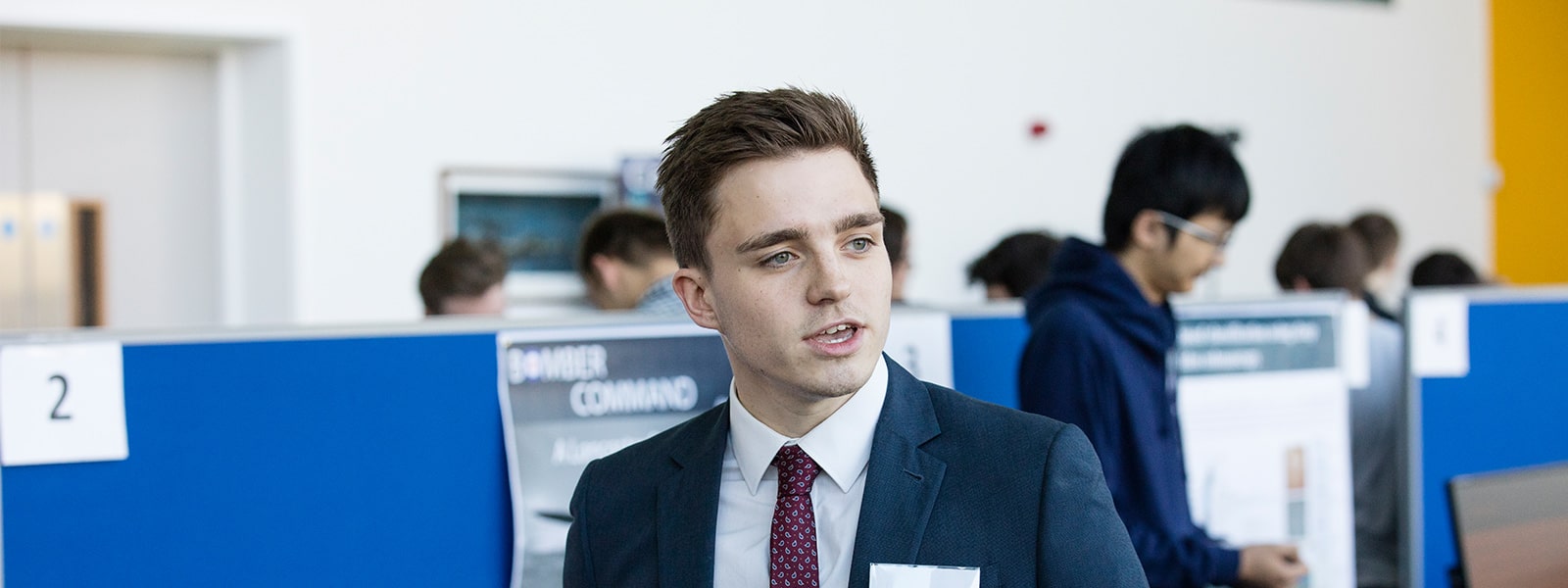Module Overview
This module provides students with the opportunity to develop an overview of e-business by reviewing how firms run their businesses, organise operational infrastructures, share information with business partners and communicate with customers. It explores the role of e-commerce (that is, the trading of goods and services through online systems such as e-sales and e-purchases) on market position, competition and sustainability, and encourages student to reflect on the changing nature of the relationship between the supplier and user/the human and the digital interface.
Module Overview
The module adopts a practice based approach. The module will explore skills associated with leadership practice and provide an opportunity to rehearse and develop these skills in a supportive and safe environment. Participants will learn about their own behaviours and those of others and receive and give feedback to enable personal development.
Module Overview
This module gives student the opportunity to investigate current research into the practice of business and management. Students can explore the effects of shifts in economics, politics, and society’s interests on business management and reflect on the implications this will have on ways of thinking, managing, and working in contemporary organisations.
Module Overview
This module explores the complexity of the relationship between knowledge, theories and action. Management is regarded as both practical and pragmatic, but also fundamentally a philosophical phenomenon. In this context, the underpinning epistemological and ontological assumptions of management theories, as well as managerial practices, are scrutinized.
Module Overview
This module aims to introduce the concepts, theories, and techniques of strategic management, enabling learners to develop a well informed and critical understanding of the business environment. Students can also develop the tools and frameworks to analyse and evaluate complex, changing, and emerging issues facing 21st century organisations, help them to know and conceive how organisation can create and sustain competitive advantage over rivals in the marketplace.
Module Overview
Students studying this module will understand that business ethics comprises of complex ideas, applications, and interpretations about not only what is right and wrong, but also why things are considered right and wrong. Business ethics is key part of developing responsible leadership at all levels of organisations.
Module Overview
This module addresses the implications of interruption to business and the issues and problems that may arise in connection with measures designed to counteract the effect of such interruption. Students are introduced to the underlying rationale for crisis management and business continuity initiatives both from a theoretical and professional perspective. The module examines the positioning of crisis management within an organisation’s overall strategic plan by reference to examples of good practice from organisations at home and abroad.
Students can examine the role and function of effective crisis communication during times of crisis. Approaches to crisis management are evaluated and applied to a range of organisational case studies. The module also explores the relationship between crisis management and risk management which is seen as an inherent part of all businesses and which is further compounded by the uncertainties with the nature of product and consumer.
Module Overview
This module examines the various scenaria that arise during the management of natural disasters. It enables students to examine different ‘disaster’ situations and competing approaches to disaster management intervention measures.
The module aims to expose students to the anatomy of disaster and to reflect upon the best strategic practices for the management and control of disasters and emergencies. The module uses real case studies to demonstrate the importance of preparedness for disaster, and the need for effective recovery and rehabilitation measures. Students are introduced to the levels of command and the systems in place for any situation requiring major emergency or disaster management.
The module also examines the position of relief workers and victims caught up in disaster. As such, this module analyses a range of strategic options in terms of theory and practice. The development of strategic thinking is relevant to both those interested in uniformed and non-uniformed public sector management.
The module aims to increase students’ awareness of the nature and management of disasters, drawing on an interdisciplinary approach. It is designed to enable graduates to engage with and relate to disaster professionals with confidence and commitment.
Module Overview
This module is only for students whose first language is not English.
The module aims to enable students to gain high-level communication skills appropriate for leaders in the international business world. The main aims are to strengthen and consolidate existing communicative competence and introduce new skills as appropriate, to apply communication skills to selected professional contexts, and to provide increasing opportunities for initiative, autonomy, and group work.
The module aims to enable students to be able to communicate information effectively within international businesses to a diverse range of audiences, presenting an organisation and its services or products in the clearest possible way to consumers, clients and colleagues. Students can develop the skills to work successfully in a team and in a professional manner appropriate for leadership.
Module Overview
This module is only for students whose first language is not English.
The module aims to enable students to gain high-level communication skills appropriate for leaders in the international business world. The main aims are to strengthen and consolidate existing communicative competence and introduce new skills as appropriate, to apply communication skills to selected professional contexts, and to provide increasing opportunities for initiative, autonomy, and group work.
The module aims to enable students to be able to communicate information effectively within international businesses to a diverse range of audiences, presenting an organisation and its services or products in the clearest possible way to consumers, clients and colleagues. Students can develop the skills to work successfully in a team and in a professional manner appropriate for leadership.
Module Overview
This module is designed to enhance students learning from their level two studies and to take their appreciation of theoretical finance into the real world of business application. The module will aim to teach the financial skills and knowledge that will be invaluable to students whichever career they subsequently pursue.
Module Overview
Students undertaking this module can learn how to identify, recognise, and use entrepreneurial skills, skills which are sought after throughout industry and government organisations. The module ultimately aims to equip students with a comprehensive depth and range of entrepreneurial theory.
Module Overview
The aim of this module is to provide students with a thorough understanding of global marketing, including historical perspectives, trends, and issues characterising international markets, and considers the strategic marketing implications for companies operating in a rapidly changing and dynamic global business environment. For many organisations, the importance of a global perspective and strategy is vital to long-term success. Competitive marketing strategy, examined in a global context, is a market-oriented approach that establishes a profitable and sustainable position for the firm against all the forces that determine industry and ultimately international conditions of trading. The module introduces different global marketing strategies and approaches, specifically market entry strategies and the impact that macro- and micro-environments have on international operations. Students can further develop an understanding of effective marketing communication and branding within a global context.
Module Overview
The Final Independent Research Project, allows students to undertake a substantive piece of research in the context of both their chosen degree specialism and Lincoln International Business School's commitment to principles of responsible management. Research areas will be framed by areas of research expertise existing with relevant departments. Students will progress through guided research and workshops to supervised independent study.
Module Overview
Students can elect to undertake their final project as an enterprise project, culminating the development of a business plan for a new enterprise. Planned ventures will be framed by Lincoln International Business Schools commitment to Principles of Responsible Management and as such prospective start-ups will need to evaluate their proposed venture in the context of sustainable development. Student will be provided with appropriate academic support and business advice.
Module Overview
The Negotiated Client Based Project is an elective which develops the skills and understanding of what makes a successful consultant, whilst reviewing industry sustainability issues and what is needed to support a company through change. The Negotiated Client Based Project (NCBP) sits alongside other forms of independent study at Level 6 including (but not exclusively) Independent Research Project, or Independent Responsible Enterprise Project. Students are encouraged to learn and understand the challenges, opportunities and skills required by organisations to make effective decisions on behalf of a client in a “live business” environment. This module enables students to consider success and failure aspects of business and marketing within the context of LIBS commitment to Principles of Responsible Management and sustainable development.
Module Overview
This module explores how the subjects of management and organisation are represented by popular media forms such as Hollywood film and television drama.
In contemporary society, visual media plays an important part in shaping our expectations and understandings of organisations. Not only do popular media forms determine the information we receive and the perceptions and opinions we come to hold, it can also provide us with a way of making sense of our own experiences of work.
For future managers and leaders, reading film and television texts is an important way of gaining insight into the cultural ideology embedded within these texts and developing a critical awareness of the role of the media in reproducing systems of power and authority associated with the dominant culture.
Looking at a diverse range of media genres, from hospital television drama to ‘mockumentary’ to science fiction films. This module investigates the ways in which dramatic representations and stereotypes work to create and perpetuate popular understandings of organisational structures and managerial processes.
The module seeks to develop students’ abilities to read media texts and interpret their cultural and social significance relative to their own organisational experience and the experience of others through a range of teaching and learning activities including reading, lectures, screenings, seminar discussions, and student presentations. This student-led approach supports the enhancement of personal responsibility, research, and team working skills.
Module Overview
The major function of the module is to locate the role of Human Resource Development (HRD) function in the organisational context. The module explores and examines strategic as well as operational aspects of the function in the light of the contemporary business environment and social context.













